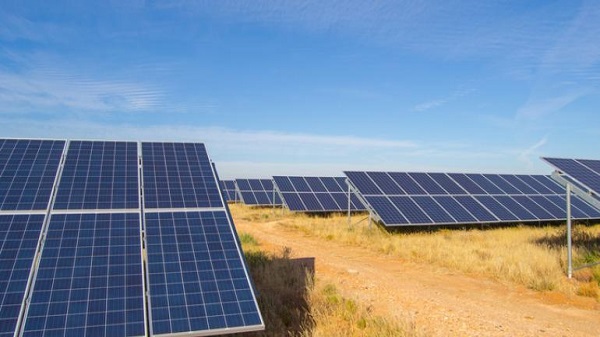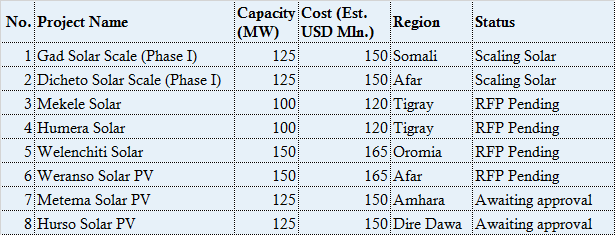
The four solar photovoltaic projects announced by the Ethiopian government are in addition to two Scaling Solar projects which are currently being procured under the IFC’s Scaling Solar Program
Improving conditions for solar energy investment in Ethiopia (Baker & McKenzie)
Project Landscape
The Ethiopian Government recently announced the commencement of a tender for four solar photovoltaic (PV) projects. These four projects are in addition to two Scaling Solar projects which are currently being procured under the International Finance Corporation’s (IFC) Scaling Solar Program*. In addition, two separate solar PV projects are expected to be initiated later in the year. Each of these projects will be developed on a public private partnership (PPP) basis.
The request for proposals (RFPs) for the four projects are scheduled to be released in late April or early May 2019. The RFP for the two Scaling Solar projects is expected to be released to the pre-qualified developers before the end of February this year. The term of the power purchase agreements (PPA) will be 20 years.
The below table summarizes the eight pending solar PV projects in Ethiopia:

Key Challenges
Following some challenges experienced in previous solar projects, for example the 100 MW Metahara solar project that was awarded to Enel in October 2017, the Government of Ethiopia has agreed to take a more active role in the procurement process in an effort to streamline the implementation of these projects. Some of the key challenges included:
- acquisition of land processes;
- the lack of a “one-stop shop” service for licensing and approvals (meaning that investors in PPPs are required to obtain licenses and approvals from different institutions or regulatory bodies, whereas investors outside of PPPs are able to manage this process through a single entity, the Ethiopian Investment Commission);
- payment guarantees from Ethiopian Electric Power (EEP) for defaults under the PPA;
- securing competitive financing;
- converting local currency into USD or any other foreign currency; and
- a lack of know-how in key government stakeholder departments.
Key Interventions
The following specific interventions by government have been initiated to assist projects with some of these challenges:
- the government will facilitate the acquisition of land rights on behalf of projects. For example, the land sites for the Scaling Solar projects has been identified and the process for the transfer of land use rights has already begun;
- the PPP Proclamation provides that restrictions in tenure of land and the bidding system will not apply to PPP projects and that a right may be created for security interests over assets, as required to source financing for PPP projects; and
- the forex directive, which provides for on-demand access to foreign currency for payment of external debt obligations and suppliers’ credit, will also ease access to finance for investors.
Other incentives that may be available for PPP investors, subject to negotiation and agreement with EEP (and other government departments), include:
- compensation for change of laws specifically applicable to the infrastructure being developed or the service it provides ;
- assignability of the project agreements;
- certain tax incentives;
- government economic support and guarantee for the sustainability, implementation, and financial viability of the project including the provision of minimum off-take, availability payments, and cash subsidies; and
- a free choice of dispute resolution mechanism.
NOTE: This article was co-written by Yibeltal Shiferaw, on secondment from Tadesse Kiros Law Offices (TKLO) in Ethiopia
Source: Baker & McKenzie
* What is Scaling Solar program?
In view of the low electrification rates in Sub-Saharan Africa, where two-thirds of the population still have no electricity, and considering the enormous photovoltaics (PV) potential in those regions, the International Finance Corporation (IFC), a member of the World Bank Group, launched the aid program Scaling Solar in January 2015. The aim of the program is to promote fast and transparent development of the PV market in Africa. Scaling Solar is a “one-stop-shop” program that brings together a suite of World Bank Group services under a single engagement to provide the governments of the Sub-Saharan countries with electricity supply solutions. IFC is responsible for the supervision of the entire process all the way from project preparation through to project audit and financing to the commissioning of the large-scale PV plants, which should not take longer than two years. In addition, the program aims to stimulate private investment in the African PV market and ensure competitive solar electricity tariffs. [Source: Rödl & Partner]
